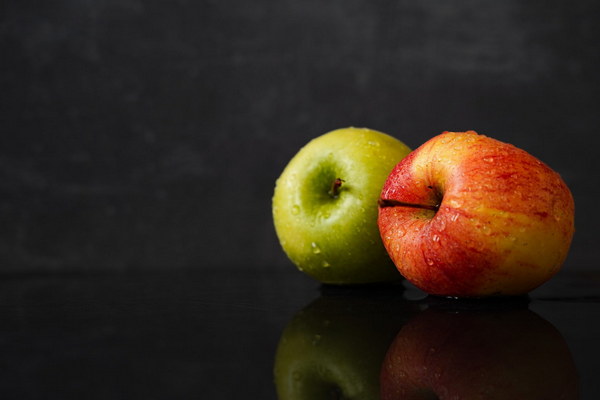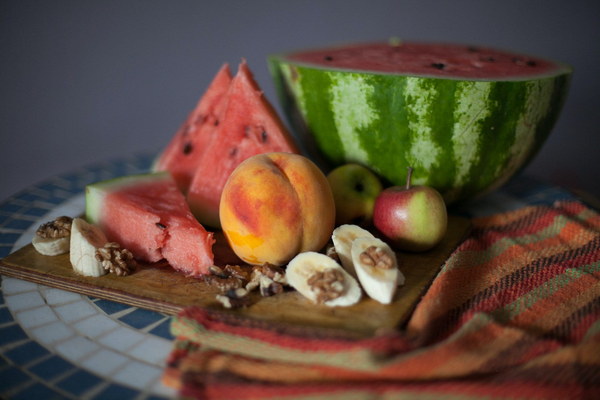Revitalize Your Appetite with Traditional Chinese Medicine A Culinary Journey to Balanced Eating
In the realm of traditional Chinese medicine (TCM), the concept of balancing the body's yin and yang is fundamental to achieving overall health and well-being. One aspect of TCM that often goes overlooked is the use of medicinal foods, or yao shan, to regulate one's appetite. These culinary treasures not only satisfy your taste buds but also address underlying imbalances within your body, leading to a more harmonious and enjoyable eating experience.
Appetite regulation is crucial for maintaining a healthy diet and preventing various health issues. Whether you're struggling with a lack of appetite or overeating, TCM offers a wealth of natural remedies that can help you find the perfect balance. Here's a closer look at some of the most popular TCM ingredients for regulating appetite, along with a delicious recipe to get you started on your journey to balanced eating.
Common TCM Ingredients for Appetite Regulation
1. Ganoderma Lucidum (Reishi Mushroom): Known as the king of herbs, ganoderma lucidum is prized for its immune-boosting and energy-boosting properties. It's believed to stimulate the appetite and improve digestion, making it an excellent choice for those who experience a lack of appetite.
2. Codonopsis Pilosula (Dang Shen): This root has been used in TCM for centuries to enhance energy, boost the immune system, and improve digestion. It's often recommended for those who have a weak appetite or suffer from chronic fatigue.
3. Poria Cocos (Fu Ling): Poria cocos is a versatile herb that can be used to treat various digestive issues, including lack of appetite. It's believed to help eliminate dampness from the body, which can lead to bloating and a poor appetite.
4. Atractylodes Macrocephala (Cang Zhu): Cang zhu is another root that's often used to address digestive problems and regulate appetite. It's believed to have a warming effect on the body, which can help improve digestion and increase appetite.
5. Fructus Schisandrae (Wu Wei Zi): This berry is known for its ability to balance the body's yin and yang, as well as its anti-inflammatory and antioxidant properties. It's often used to improve digestion and stimulate appetite.
Recipe: TCM-Infused Codonopsis Pilosula Chicken Soup
To create a dish that combines the benefits of TCM with a delicious meal, try this Codonopsis Pilosula Chicken Soup. This comforting and nourishing soup is perfect for those who need a little extra help with their appetite.

Ingredients:
- 1 whole chicken (about 3 pounds)
- 2 pieces of Codonopsis Pilosula (Dang Shen), sliced
- 1 piece of Poria Cocos (Fu Ling), sliced
- 1 teaspoon of Atractylodes Macrocephala (Cang Zhu), ground
- 1 teaspoon of Fructus Schisandrae (Wu Wei Zi), crushed
- 2 carrots, sliced
- 2 stalks of celery, sliced
- 1 onion, chopped
- 4 cloves of garlic, minced
- Salt and pepper to taste
- 1 tablespoon of sesame oil
- 8 cups of water
Instructions:
1. In a large pot, bring the water to a boil. Add the chicken and cook for about 10 minutes. Skim off any foam that rises to the surface.
2. Add the Codonopsis Pilosula, Poria Cocos, Atractylodes Macrocephala, Fructus Schisandrae, carrots, celery, onion, and garlic to the pot. Reduce the heat to low and simmer for 1 hour.
3. Add salt, pepper, and sesame oil to taste. Serve hot and enjoy!
By incorporating these TCM ingredients into your diet, you can not only regulate your appetite but also improve your overall health and well-being. Remember, the key to a balanced diet is not just about what you eat, but how you eat it. So, take this opportunity to savor the flavors of TCM and embark on a journey towards a healthier you.









